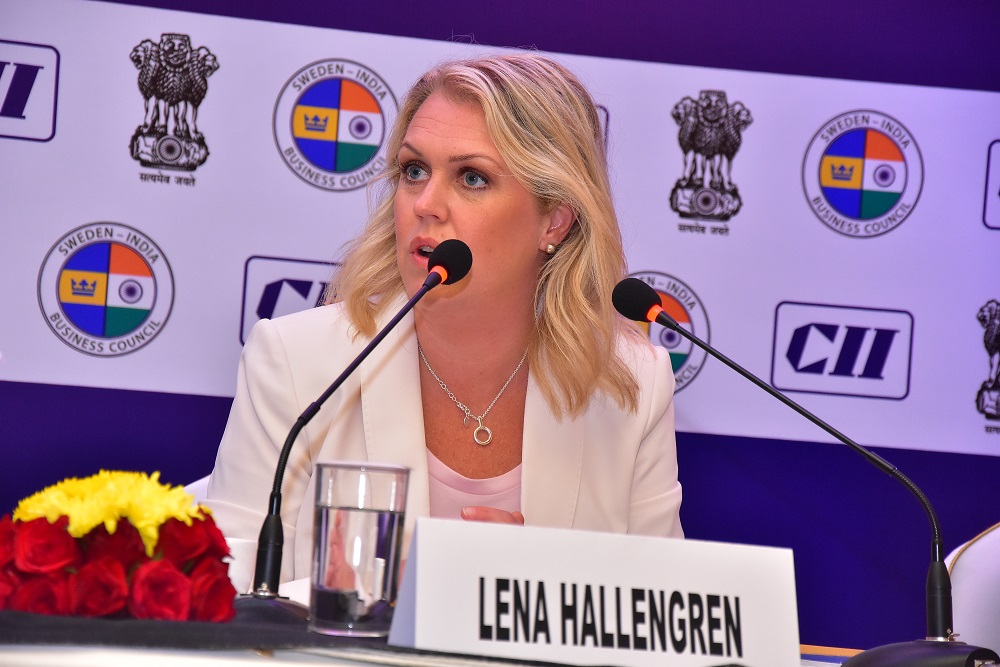Relevant Case/Citation for General Study & Essay:-UPSC-CSE 2019-20 FOUNDATION & TEST BATCHES WILL START JUNE 2019
- Sweden has one of the best healthcare systems in the world. This is exemplified by the fact that life expectancy in Sweden is 81 years for men and 84 years for women. The country actually spends around 10% of its Gross National Product on healthcare. Plus, Sweden’s culture of innovation has ensured a high degree of collaboration between science, entrepreneurs and clinical research. This in turn has led to the creation of internationally reputed companies in medical technology and pharmaceuticals. Additionally, Swedish healthcare is largely financed through taxes, thereby ensuring that cost of services for patients is nominal.
- The fundamentals of the Swedish healthcare model rest on the principles of equal worth of every individual and the equal right of everyone to medical care. It follows that patients with the greatest need are treated first. Taken together, it is suffice to say that Sweden has a sophisticated healthcare set-up bolstered by a solid technological base and an effective delivery system. It is against this backdrop that Swedish health minister Lena Hallengren’s visit to India needs to be seen. As India looks to scale up its own healthcare facilities and coverage, Sweden has all the technical tools and experience to aid the former’s endeavour.
- I spoke with minister Hallengren about the India-Sweden partnership in health and the way forward in this vital sector:

Q) India and Sweden have had an MoU on health for exactly 10 years. Could you elaborate on the progress so far?
- Ans) We have had different kinds of exchanges and cooperation for much more than 10 years but this MoU that was signed in 2009 was a start up for even more closer and determined cooperation. I am here in India with a big delegation of 30 people from government agencies, companies and academia, and they have lots of good contacts here. They have had projects in this country before and are looking for new projects to collaborate. Of course, as countries Sweden and India are quite different but there are many things that connect us, such skill exchange, innovation, medical technicians, etc. This is the Sweden-India Year of Health precisely because we have completed 10 years since the MoU.
Q) What are the plans for the Sweden-India Year of Health?
- Ans) Plans include my current visit with a big Swedish delegation, and many of the members are having their own meetings with Indian partners. When we get back to Sweden we hope to finalise some new projects to collaborate on till this autumn when I hope to welcome the Indian minister of health to Sweden. The cooperation we are looking at is both between companies and hospitals. For example, one of the companies in my delegation is Bactiguard which is working to prevent infections in Indian hospital care.
Q) You are working on anti-microbial resistance cooperation. Could you elaborate on that?
- Ans) That is a really important issue. There is an important alliance that exists called the Alliance of Champions which was launched at the 2015 World Health Assembly. The aim of this alliance is to create political awareness, engagement and leadership on anti-microbial resistance because this is truly a global problem requiring international coordination. We need to tackle together the overuse of anti-microbial drugs that creates resistant pathogens. And of course, we would like to have India together with us in this endeavour.
Q) Are there any plans of collaborating on primary healthcare in India?
- Ans) The discussions we have had are on public health. We won’t be able to expand Indian healthcare centres and hospitals. But we can collaborate on exchange of skills and training. Your government has a huge healthcare ambition comprising the AIIMS, district hospitals and primary wellness centres. We would like to be a little part of that and contribute through research possibilities and other technical cooperation. I can inform you that there was a big Indian delegation to Sweden last year that looked at our primary healthcare centres for inspiration and future cooperation.
Q) Sweden has excellent elderly care facilities and institutional care for the elderly is just becoming an issue in India. Is there anything we can learn from the Swedish model?
- Ans) We have a long tradition of how we have organised the Swedish welfare system with children’s care and elderly care. That is also due to the fact that both men and women are working full time so you have to organise children’s and elderly care in a different way than you are doing in many countries where you don’t have that kind of situation in the labour market. We do have ongoing bilateral collaboration on research into aging, so this is an area where we are looking to expand our cooperation.
Q) Similarly, making public places disability friendly has also become an important issue here in India in recent times. Again, is there something that India can learn from Sweden about caring for differently-abled people?
Ans) We can always exchange experiences. In Sweden we have been working for a long time on making our public places more accessible. It is also important to remember that when we talk about disabilities, it is not just physical disabilities but also psychological or neurological. This is something that we need to bear in mind when we are looking at the labour market where everybody is supposed to be working and earning for themselves. So we need to make our workplaces more accessible for people with different kinds of disabilities.

